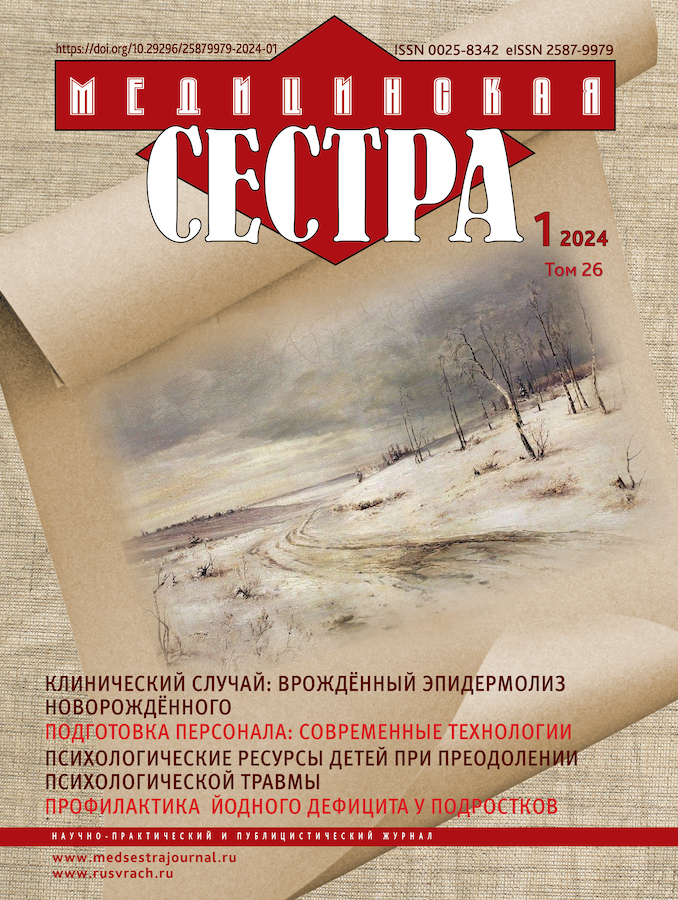Children’s psychological resources to cope with psychic trauma
- Authors: Solovyeva S.L.1
-
Affiliations:
- North-Western State Medical University named after I.I. Mechnikov
- Issue: Vol 26, No 1 (2024)
- Pages: 53-56
- Section: Problem
- URL: https://journals.eco-vector.com/0025-8342/article/view/629529
- DOI: https://doi.org/10.29296/25879979-2024-01-12
- ID: 629529
Cite item
Abstract
The paper includes a review of the consequences for the child’s personality that follow from a psychic trauma that generates feelings of helplessness and dependence on others. There is a discussion of the psychological resources that the child develops in the process of his or her personality formation, as well as a discussion of the psychological defence mechanisms and coping processes that allow coping with hardships. Relationships with family members, mother, first of all, play a special role in the development of the child’s mental well-being.
Full Text
About the authors
Svetlana L. Solovyeva
North-Western State Medical University named after I.I. Mechnikov
Author for correspondence.
Email: S-Solovieva@ya.ru
ORCID iD: 0000-0001-6129-9825
Doctor of Psychology, Professor, Professor at the Department of Psychotherapy, Medical Psychology and Sexology
Russian Federation, Saint-PetersburgReferences
- Bad’ina N.P. Psychological assistance to the child who has survived the psychic trauma: Guidelines for educational psychologists in EI. Kurgan, IPKiPRO, 2005. 63 p. (in Russ.).
- Nikol’skaya I.M., Granovskaya R.M. Children’s’ psychological defence. Saint Petersburg, Rech, 2000. 507 p. (In Russ).
- Pyatnitskaya E.V. Psychological support to children and teenagers experiencing psycho traumatic events: Coursebook for students of psychology and practicing psychologists. Balashov, Nikolaev, 2008. 180 p. (In Russ).
- Shcherbakova E.S. Psychological characteristics of the children who have experienced abuse and forms of work with them. Guidelines. Khanty-Mansiysk, Izdanie Tsentra psikhologo-pedagogicheskoi reabilitatsii i korrektsii, 2014. 70 p. (In Russ).
- Aleksandrova L.A., Lebedeva A.A., Bobozhei V.V. Psychological resources of the personality and socio-psychological adaptation in the professional education of students with limited health capacities. Psikhologicheskaya nauka i obrazovanie, 2014; 1: 50–67. (In Russ).
- Oslon V.N., Odintsova M.A., Sem’ya G.V. et al. Psychological resources and personality deficits in orphanage graduates. Sotsial’nye nauki i detstvo, 2022; 3 (2): 69–89. (In Russ).
- Dubrovina I.V. Psychological well-being of school students in the modern education system: work book. Saint Petersburg, Nestor-Istoriya, 2016. 180 p. (In Russ).
- Matafonova S.I. Search for social support as an efficient coping resource in psychological health of elementary school students. V mire nauchnykh otkrytii. Sotsial’no-gumanitarnye nauki, 2014; 59 (11.7): 2483–2494. (In Russ).
- Knyazeva T.N. Temporary aspects of the problem of intellectual development of adolescents in time of their age crisis. Sovremennye problemy nauki i obrazovaniya, 2014; 6: 1548. (In Russ). https://science-education.ru/ru/article/view?id=16562 (accessed: 11.08.2023).
- Franco M.G., Candeias A.A., Beja M.J. Social and emotional intelligence in children with special educational need institutionalized. International Journal of Developmental and Educational Psychology, 2011; 4 (1): 277–282.
- Svilo Ya.V. Emotional intelligence as a socio-psychological resource of the personality of adolescents living in rural areas. Mir nauki. Pedagogika i psikhologiya, 2020; 6. (In Russ). https://mir-nauki.com/PDF/12PSMN620.pdf (accessed: 10.01.2024).
- Kuz’micheva E.A. Empathy and its development in children of preschool age. Sovushka, 2020; 19 (1). (In Russ). https://kssovushka.ru/zhurnal/19/2118-empatiya-i-ee-formirovanie-u-detei-doshkolnogo-vozrasta (accessed: 08.08.2023).
- Zasimskaya T.G., Vyatkina G.A., Semenova Yu.S. et al. The need for affiliation in interpersonal communication of preschool students. Voprosy doshkol’noi pedagogiki, 2020; 33 (6): 47–49. (In Russ). https://moluch.ru/th/1/archive/170/5359 (accessed: 08.08.2023).
- Ogol’tsova, E.G. Lesyunina, A.A. Ovcharenko A.G. The role of parents in development of child’s self-assessment. Molodoi uchenyi, 2017; 182 (48): 161–164. (In Russ). https://moluch.ru/archive/182/46807 (accessed: 08.08.2023).
Supplementary files






